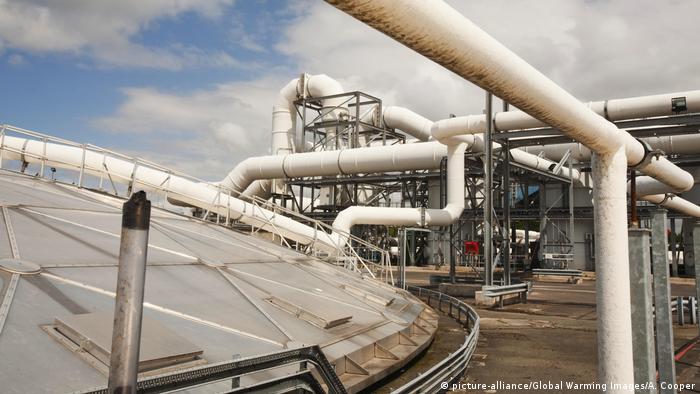Scientists say they found the virus that causes COVID-19 in a Dutch city's waste water before the first confirmed case in the city. They hope that sewage surveillance may be an early indicator of COVID-19's presence.

Researchers in the Netherlands said on Monday that the pathogen that causes COVID-19 was present in the sewage system of a Dutch city weeks before the first cases of coronavirus were confirmed in the same city through testing.
The research indicates that sewage surveillance could be a useful tool in detecting whether coronavirus is present in a population before testing patients.
Traces of the virus SARS-CoV-2, the virus that causes COVID-19, are present in the feces of many infected people. This means that testing wastewater for the pathogen can be a good way to determine whether coronavirus is present in a population.
Gertjan Medema and colleagues at the KWR Water Research Institute in Nieuwegein tested wastewater in seven Dutch cities as well as the waste water of Amsterdam Schiphol airport.
Samples taken from a wastewater plant in Amersfoort, near Utrecht, show that the virus was present in the sewage on March 5, weeks before any cases were reported in the city. The first cases in the Netherlands were confirmed on February 27.
Read more: From bats to pangolins, how do viruses reach us?
Sewage surveillance could predict COVID-19 circulation
"It is important to collect information about the occurrence and fate of this new virus in sewage to understand if there is no risk to sewage workers, but also to determine if sewage surveillance could be used to monitor the circulation of SARS-CoV-2 in our communities," Medema wrote in the paper.
Sewage surveillance has been previously used to detect the presence of poliovirus and drug prevalence in populations. The KWR Institute is confident their research could be beneficial in tracking the spread of COVID-19.
"Our sewage screening can help to get a better picture of the virus circulation," they wrote on their website. "When the current peak (hopefully it will stay as flat as possible!) is over, sewage screening also helps to detect early — possibly [in the] coming winter — if the virus circulation is increasing."
The preliminary paper was published ahead of peer review on the website medRxiv, which prints preliminary reports of work before certification. The website stresses that reports published there "should not be relied on to guide clinical practice or health-related behavior and should not be reported in news media as established information."
---30---
No comments:
Post a Comment